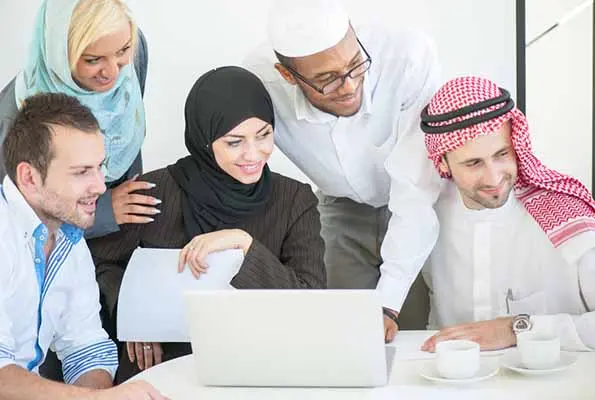As the nation views gender equality as a pillar of sustainable development under the “Vision 2030” economic diversification agenda, Saudi Arabia is now aiming to enhance the proportion of women in a variety of fields, according to the minister of economics and planning.
Speaking at the Human Capability Initiative in Riyadh recently, Faisal Al-Ibrahim stated that the Kingdom has seen a notable increase in the number of women working in the private sector.
“A fundamental component of our dedication to sustainable development is gender equality. Numerous initiatives promote the important macro goal of increasing female representation,” Al-Ibrahim told the media.
“Women currently hold important roles in ministries and government entities, as well as 20% of seats in the Saudi Shoura Council,” he continued, while adding that in the business sector, women have been occupying 29% of middle and senior management roles, and they also lead 45% of SMEs (small and medium business) in the Kingdom.
The minister went on to say that Saudi Arabia places a high value on human capital investment and is working to improve the futures of its people through several projects.
“We believe investing in human capital is essential to the Kingdom’s transformation,” Al-Ibrahim stated, while informing that the Ministry of Economy and Planning places human capital at the centre of policy making.
Al-Ibrahim claimed that Saudi Arabia is a young nation with plenty of opportunity to grow its economy because the majority of its citizens are working age.
“Saudi Arabia is a relatively young nation. With a typical age of only 29, 73% of the population is working age, while only 3% is older than 64. This indicates that we have a special demographic window and opportunity that could stimulate the economy. Countries may see gains in savings, investment potential, and productivity at this time,” the minister continued.
Speaking about the Kingdom’s human capability programmes, he stated that by 2030, 88% of the population would have access to inclusive healthcare services thanks to the “Healthcare Transformation Programme.”
The minister added that reaching 70% homeownership in the Kingdom is one of the objectives of the national housing policy.
“Saudi Arabia’s Healthcare Transformation Programme offers a more extensive, individualised, and integrated healthcare system through a variety of innovations and digital technologies. By 2030, a single digital medical record system will cover 100% of the population, and 88% of people will have access to inclusive healthcare services,” according to Al-Ibrahim.
The minister also emphasised how the business sector contributes to improving human potential. The minister stated that governments had to support changes that would boost private expenditures on human capital.
“There are numerous ways that the government can promote reforms and innovation, and we must provide the proper framework for commercial and social investments in human capital; tax investments, and public-private partnerships,” Al-Ibrahim observed.
Furthermore, he stated that Saudi Arabia will continue to advance even after reaching the objectives outlined in “Vision 2030”.
“I can assure you that improvement will continue after 2030. We’re creating a culture where learning and development never stop. Every accomplishment the kingdom achieves is only a rung on the ladder leading to the next. The official stated that it is imperative to utilise the strength and energy of the private sector to attain optimal results,” He remarked, while concluding, “Saudi Arabia is open to international cooperation, ideas, and investments.”



